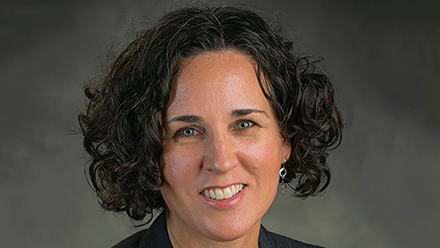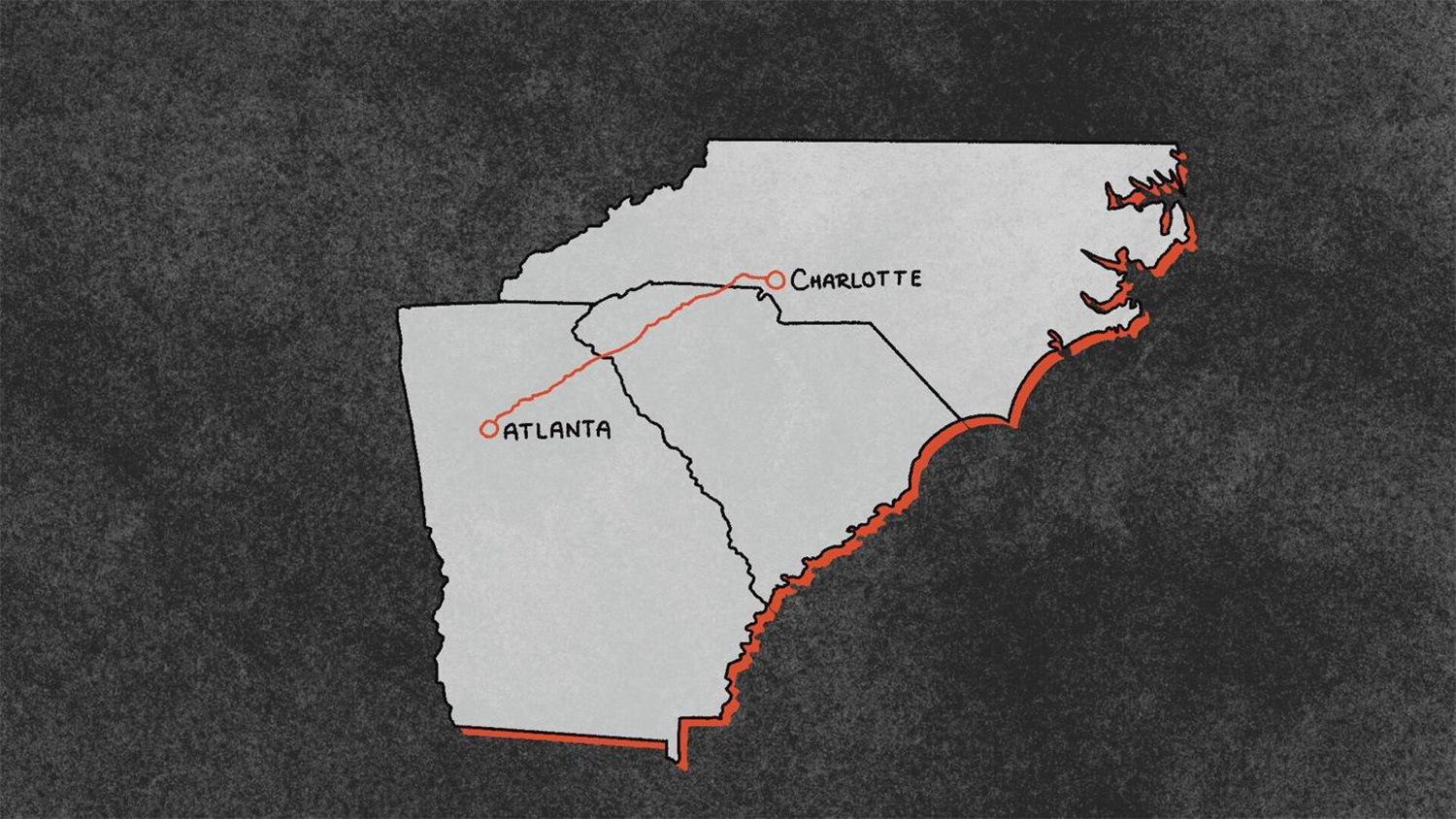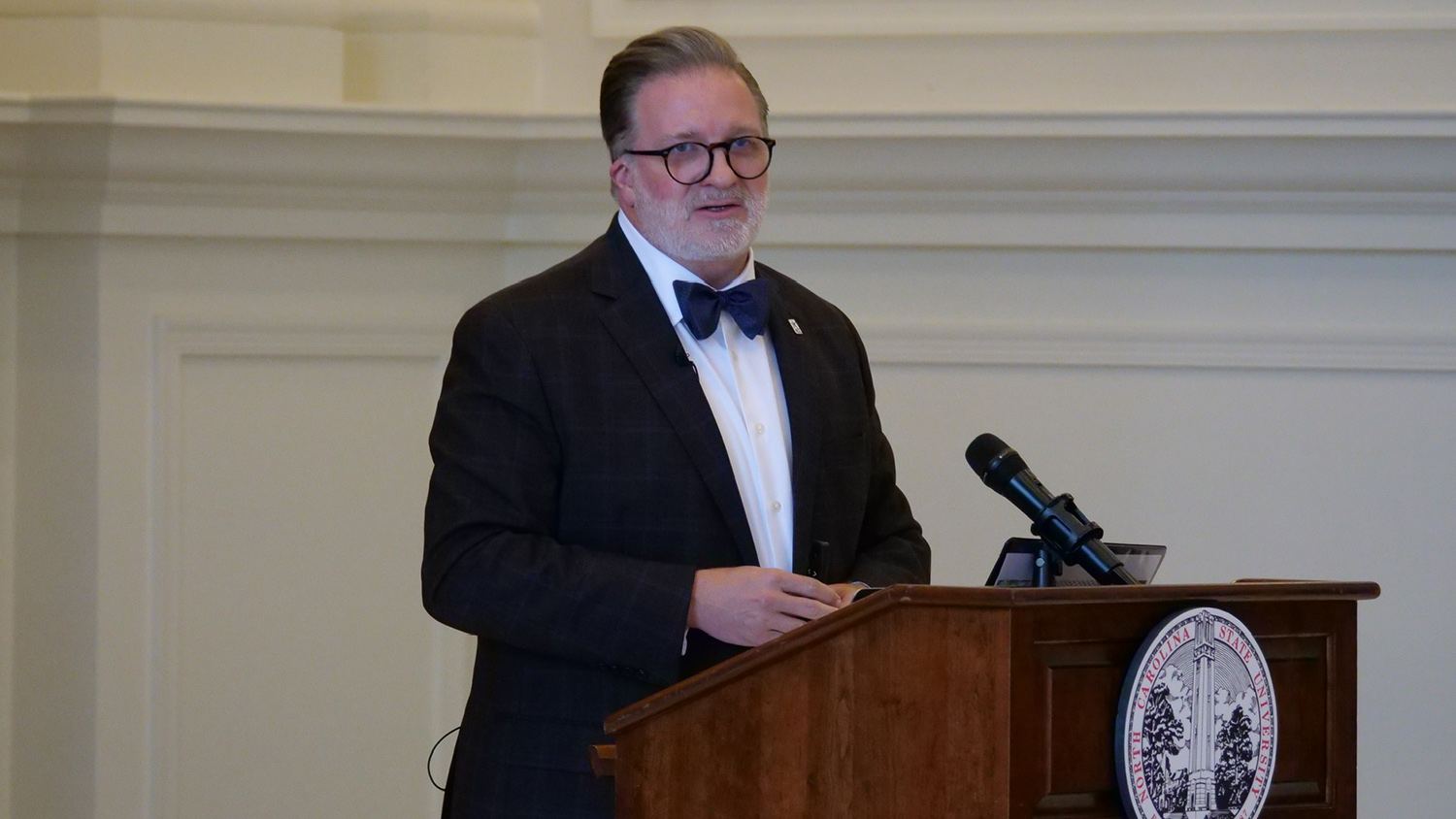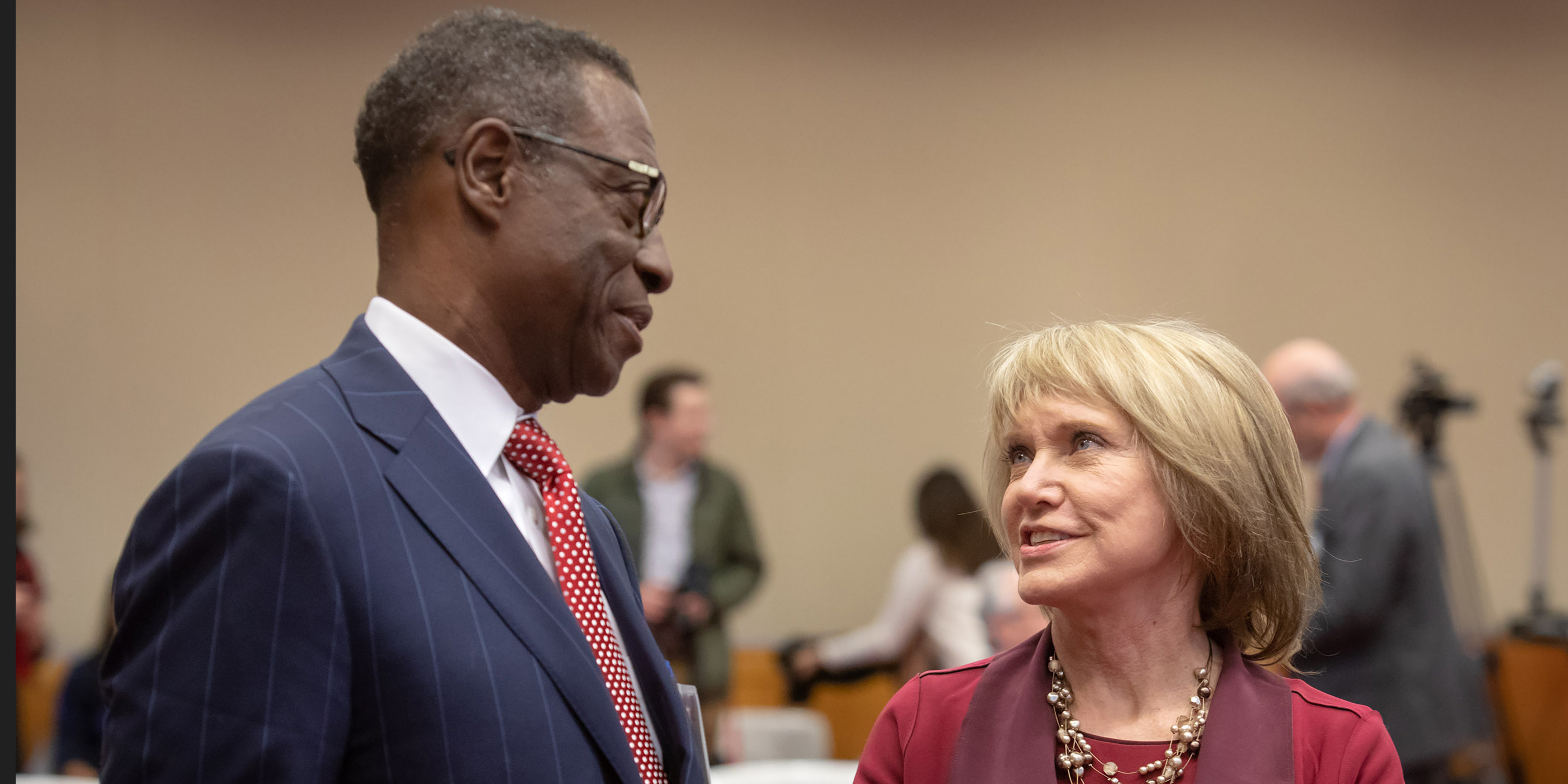Assistant Professor Paula McAvoy Suggests ‘Podcasts for a Pandemic’ to Help Educators Explain Concepts, Events Related to Coronavirus (COVID-19)

Paula McAvoy, Ph.D., an assistant professor of social studies education at the NC State College of Education and co-author of The Political Classroom: Evidence and Ethics in Democratic Education, has been using podcasts as a classroom resource for many years. Her research focuses on how teachers should bring controversial issues into the classroom, what students learn through discussions of those issues and what ethical dilemmas teachers face when introducing sensitive topics. She has curated a list of podcasts that can help high school teachers of various subjects provide students with relevant information related to the coronavirus (COVID-19) pandemic.
A question I have been asking myself during the coronavirus (COVID-19) pandemic is: How can educators help adolescents understand what is happening? Without a doubt, these are scary times and adults certainly do not want to make young people feel more anxious or afraid. And yet, one way of staying safe is by staying informed. Further, moments like these give educators an opportunity to help students learn how to navigate a complex and unfolding event like COVID-19 by directing them to quality sources of information.

To help adults with this task, I have compiled a set of podcasts, separated by academic subject, that could be assigned for online learning.
I have used podcasts as course texts for some time. I find that students really enjoy assigned podcasts when they are well produced and wrapped around a compelling question or story. Podcasts are also texts that give students some flexibility — they can listen on a walk or while driving — and overcome some connectivity issues, because they can be easily downloaded to smartphones.
Podcasts also bring diverse voices into the classroom and this tends to create a more interesting discussion by encouraging students to consider other points of view. Last, the people and stories become touchstones for the class, as students make connections between the episodes and course content.
[spotlight-box label=”” img=”32755″ align=”right” heading=”Providing Support During COVID-19″ cta=”Visit the COVID-19 Tips and Resources Page” url=”https://ced.ncsu.edu/news-new/coronavirus-college-updates/resources-for-covid-19/”]The NC State College of Education is committed to supporting educators, students and parents as they teach and learn remotely during the coronavirus (COVID-19) pandemic. To help with this, we have created a page dedicated to providing tips and resources to ease the transition to at-home learning[/spotlight-box]
I’ve selected the following set of podcasts with an eye on explaining concepts and events related to the COVID-19 outbreak in a way that is accessible to high school students — though teachers may want to prepare some background before listening by providing vocabulary, for example, and make judgments about which are most appropriate for their students. My hope is this will help young people (and adults) become better informed about this moment.
One challenge when teaching current events is that information is constantly changing. This list was created on April 4, 2020. I have tried to select episodes that will not be quickly outdated, though we are still getting new information all the time. Educators should be careful about drawing students’ attention to information that may become outdated.
General Information:
The Daily, “A Kids’ Guide to Coronavirus”: 30 mins, aired March 27, 2020
Host Michael Barbaro asks science writer Carl Zimmer questions that young children have been sending to the New York Times. Questions they discuss include: What is a virus? Can we see coronavirus and what color is it? How does it get in the body? What does it feel like? How are vaccines made? Why can’t we go to Chuck E. Cheese? The questions come from children, but teens and adults will find the answers very interesting.
Math and Science:
Radio Lab, “Numbers”: 60 mins, aired March 27, 2020.
An investigation into the numbers that are being reported in association with COVID-19. Answers the question: What is an exponential curve?
The Daily, “The Race for a Vaccine”: 25 mins, aired April 1, 2020.
The story focuses on the international effort to find a vaccine for COVID-19. This is a good example of how politics interacts with science.
Radio Lab, “Shared Immunity”: 40 mins, aired April 3, 2020.
This episode focuses on the question: Can people who have survived COVID-19 help others through a plasma transfusion? This is an interesting discussion of antibodies and science that ends with a compelling human-interest story of a doctor seeking a plasma donor for a family member. Note: This ends with her reflections on what being a doctor has taught her about death.
History:
Today in Focus, “Lessons from the 1918 Spanish Flu”: 20 mins, aired March 30, 2020.
A discussion with science writer and journalist Laura Spinney on the Spanish Flu and what is different today.
Throughline, “1918 Flu”: 38 mins, aired March 26, 2020.
This episode answers the questions: Where did Spanish Flu come from? Why is it called Spanish Flu? Why are we using social distancing today? What is different today?
History Unplugged, “COVID-19 is Nothing Compared to the 1918 Spanish Flu”: 60 mins, aired March 11, 2020.
Dr. Jeremy Brown, director of emergency care at the National Institute of Health, discusses quarantine methods used in medieval times during epidemics and pandemics, how the Spanish Flu began and ended, and lessons from 1918 that we should heed today.
The History Hour, “The 1918 ‘Spanish’ Flu pandemic”: 53 mins, aired March 14, 2020.
This BBC podcast features primary source interviews with people who experienced the Spanish Flu, and tells the history of battles against polio, Ebola and SARS.
Economics:
Planet Money, “Where Do We Get $2,000,000,000,000?”: 20 mins, aired March 26, 2020.
This podcast explores the question of how Congress can come up with $2 trillion for the stimulus bill.
Reveal, “Essential Workers”: 50 mins, aired April 4, 2020.
Investigative reporting on essential workers that asks: How is the pandemic affecting farmworkers, grocery clerks, flight attendants and a non-profit food service in New York?
Planet Money, “America Unemployed”: 22 mins, aired March 28, 2020.
Answers the questions: What does it mean to be unemployed right now? How do unemployment benefits work (then and now)?
Freakonomics, “The Side Effects of Social Distancing”: 52 mins, aired March 18, 2020.
This episode explores the questions: How is social distancing affecting the economy? Is there a silver lining?
Language Arts:
Sugar Calling, “‘Everything is Always Keep Changing’”: 41 mins, aired April 3, 2020.
This is the first episode of this new podcast. In it, host Cheryl Strayed interviews her mentor, author George Saunders, about living through a pandemic. Saunders reads a letter he wrote to his students in which he gives advice to writers about how and why they should pay attention to the moment. The episode answers the question: Why does the world need writers in a global crisis?
- Categories:


